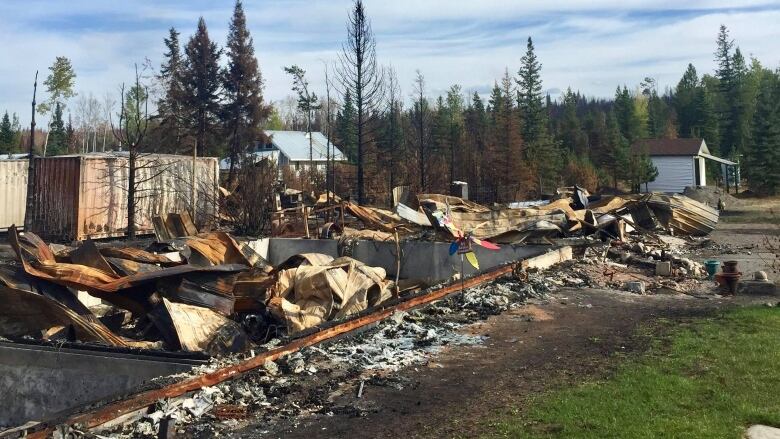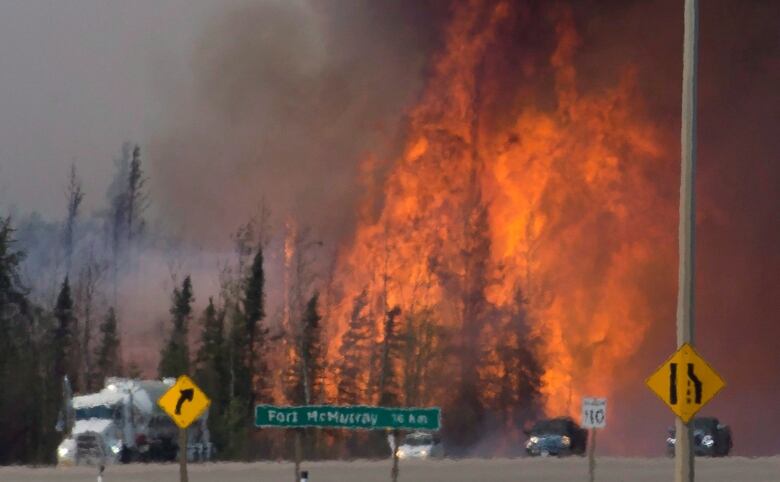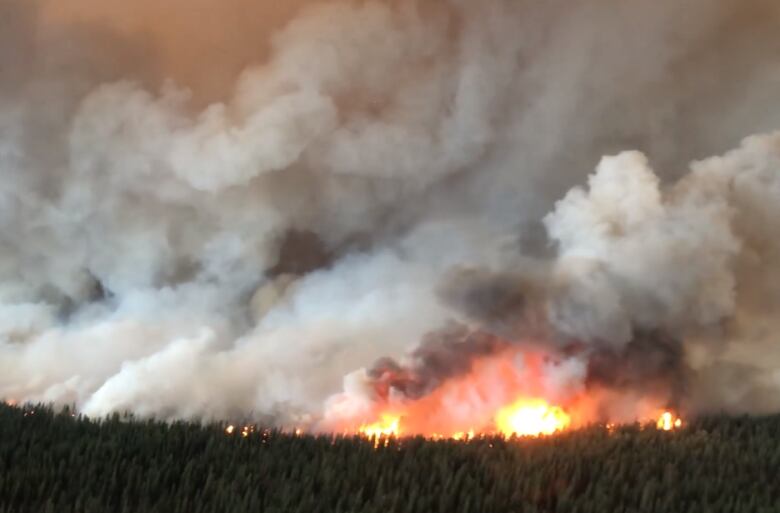A psychologist explains: Trauma and loss after fire
After the adrenaline wears off, many are left with exhaustion, devastation and grief

Thelast two summers have broken records for wildfires in B.C.Hundreds have been evacuated and many have had to start over.
Clinical psychologist Kathy Keating sat downwith Sarah Penton,host of CBC's Radio West, to talk about how people recover from losing everything they own to flames.
How do people recover from losing their home in a wildfire?
There's often times a twofold process. So one, is the immediateimpacts of the fire.
So when we think about for example, Fort McMurray and those images of people escaping, people respond to those things.

They can have nightmares, they can have restless nights. That's one process in and of itself, getting away from the traumatic experience.
And then the other processis everything that comes after that. So once you've actually gotten to safety, once you've evacuated, once you've returned maybe to your neighborhood, what is there and then to deal with it.

That's reallythe longer term distress. Often times, it's the grief, it's the anger, it's the rebuilding.
Often, I see people many years after something like this has happened.
How does that impact a person throughout their lifetime?
Itdefinitely depends on the person. We all have our own experiences of trauma.
There are lots of individual factors that contribute to that: social supports, previous distress, whether someone had insurance, whether they didn't.
But,what I found is during that initial phase, people have extreme resiliency, and weall go into survival mode, and we evacuate, and we get out, and we protect our families.
That's why we have fight or flight systems to get us through those moments, but it is after all the adrenaline is released and everything has reallyquieted down on that end, that the brain has time to try to figure out, what does this mean for me?
And that process evolves over time.

How long it takes to even just rebuild your home causes a whole bunch of stress for people with their families, and their insurance, and the cost, and living in temporary housing.
There's just so much that we don't think about initially when we hear there's a fire in Rock Creek.
Does it ever happen where people think they're fine and they're not?
Yeah, I think thathappens a lot more frequently maybe than we realize, and again I think that goes back to that survival thing.
You get all that stuff done, and you're making progress, and you're seeing these tangible changes, whether you pour your basement, or youget that first wall up, or whatever that looks like, and so ifthere'sresults that feels like things are moving forward.
But, it could be the sign of another fire, it could besomething that you find in the rubble, it could be a whole number of things that just triggers the brain in such a way that it brings these things back up and kind of throws people for a loop a lot, and then they come back to that place of 'I thought I was better.'
I read a recent research article thatthe average time that someone could seek treatment after a traumatic event can be up to 15 years.
So, I mean that's a pretty significant amount of time to live your life, and to move forward, and to feel like you're moving forward, and then to realize that maybe I haven't quite processed all of this.
This interview aired as part of a series on CBCRadio Weston June 11, 2019 and has been edited for length and clarity. Recovery: Stories From The Ashesis a four-part series that explores the aftermath of B.C.'s devastating wildfires and the effect they've had on people who've lost their homes over the past four decades.It's produced by Sarah Penton. To hear the full interview, click on the audio below.
With files from Radio West












_(720p).jpg)


 OFFICIAL HD MUSIC VIDEO.jpg)
.jpg)



























































































